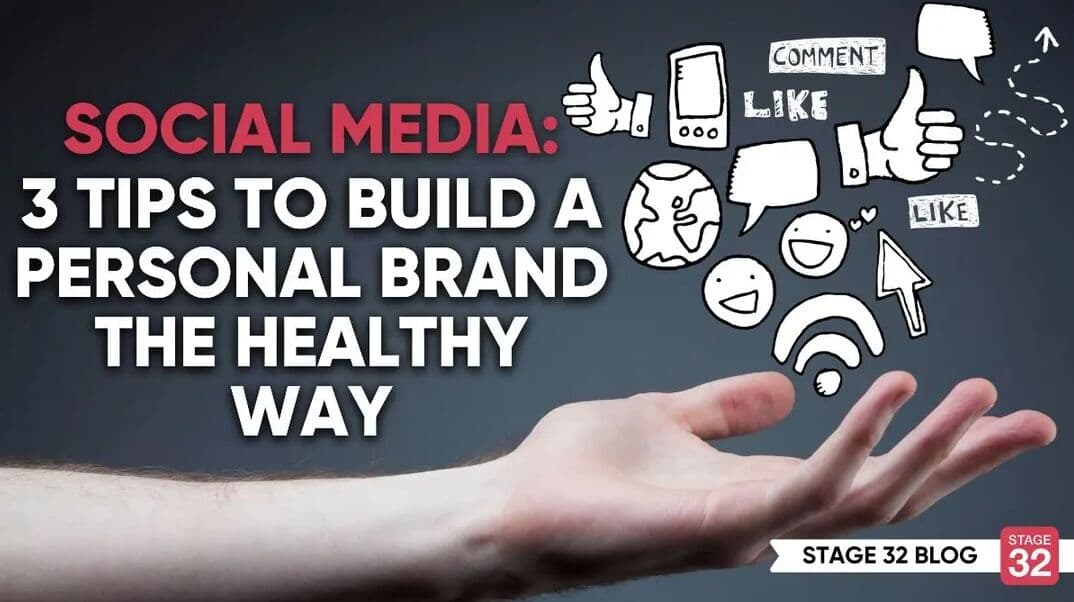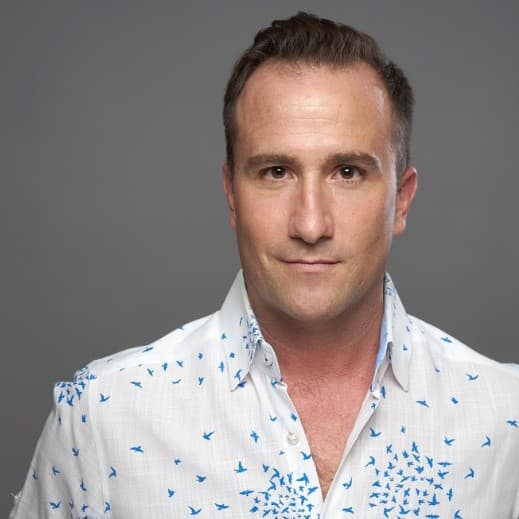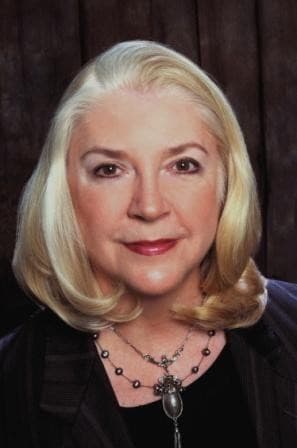How To Break Into Film & TV In A Work-From-Home World

How To Break Into Film & TV In A Work-From-Home World

Before lockdown, it seemed easier to break into Film and TV. Once in, it seemed easier to get your next job. You just had to be a hard-working and dependable human pinball.
But in this post-pandemic WFH world, how can you be a human pinball, creating and networking and getting your work in front of as many people as you can, when there are no other people around you, for you to bounce off?
It was easy to be a pinball when I was starting out. My first job was as a production assistant on PBS news documentaries. We were on an outdoor shoot and the field producer handed me twenty bucks and said, “go find that leaf blower and pay him to stop for 15 minutes.” Three walls and two dogs later, I found the gardener and bought enough silence that cameras could roll. I was the hero of the day. Proximity was destiny.
I hung around the camera crew and they liked me. That got me a job as a camera assistant in charge of the ice chests in three camera vans. I kept the drinks and snacks cold enough that summer that I got promoted to Associate Producer (cue trumpets).
Lingering. Hanging Out. Listening. Offering to help. Getting coffee. Seeing what is needed. Throwing out the trash. My goal was simple: make myself indispensable.
Today, you may only go into an office two times a week, if at all. Your closest interaction with your immediate supervisor may be through Slack and Zoom meetings. This is especially true in television pre-production and post-production; development teams, accountants, production managers, editors, and producers can all work from home. And actual shooting? Since it’s the most expensive part of a production, companies keep it as short as possible.
And it doesn’t serve producers if newcomers aren’t learning. Editors may complain, “these people don’t know what they are doing!” That’s because there is no way easy path for new talent to learn different crafts and earn trust.
Today, fewer ideas are exchanged. Institutional knowledge fades. Even the tone of a show dissipates when the people who wrote and developed it can't be as involved in production. It can lose its edge because pinballs aren’t colliding. And productions suffer for it.
But there is a way to fix this. Newcomers must work to find mentors, and mentors must be willing to teach them when they do. And both parties must carve out time and make it happen since it doesn’t happen through random interaction anymore. This is a serious problem affecting every craft in Hollywood, from hair and makeup artists down to colorists.
I found my way into post-production, where it was much easier to be a pinball. All the jobs were right there in one small office – assistant editing, editing, color correction, sound mixing, graphics, online, accounting, production management, and IT, along with rooms for incoming and outgoing camera crews. I could get my work done early and wander into an edit bay and ask if I could watch. Soon they were asking for my help and even my opinion.
After a few years, I was a full-fledged editor, and my personal network was large enough to be self-sustaining. I knew a lot of people who I could call for work or for help. Better yet, people were calling me asking me for help, which is when I really felt like I’d arrived. I became a field producer, a director, a writer, an executive producer, and a showrunner – but I’ve never stopped editing.
So how do you do it on your own? How do you find other pinballs?
Be brave and reach out. Find colleagues like yourself, along with potential mentors. Most of your efforts will be ignored, but most people ignore you in person, too. Now let’s get specific...

Do favors for people. Volunteer.
Read someone’s screenplay. When you get hired, pass a friend’s resume along. Help on that short film over the weekend. It leads to dinner, more connects and more pinballs colliding.
Volunteer. I met someone much younger than me at a climate change activist meeting. She’s reading my novel, I read hers, I brought her to an Academy Event and she’s invited my wife and me to dinner with her friends. She’ll be a player soon and hire me.
Join a Creative Community. You can’t do it alone.
In the loneliest days of the pandemic, I took an online improv comedy class through Upright Citizens Brigade and met a dozen people from around the country. The three students from Los Angeles had to make an effort to get together, but we are still in touch.
Stage 32 is a community, so dive in. I benefitted from the seminar on how to build a better pitch deck, I have a circle of contacts, and I’ve paid for phone consultations with development executives who gave me great advice. I’m in the process of turning the trilogy of thriller novels I wrote into a series, and one executive said my books would be a good video game, which sparked a whole new set of creative ideas.
Join an Organization
Women in Film. The Producers Guild. The TV Academy. The International Documentary Association. These are all easy to join, and they have mentorship, internship and diversity programs. They want new members, and luring young adults is a challenge.
I just attended the TV Academy’s recruitment mixer, because the Academy needs to bring in new blood and people from many different backgrounds. Newcomers could walk up to the chairman of any peer group, and create a relationship with someone with decades of experience in their respective craft.
Write Five Emails a Day
I try to write five short business emails a day. I start with the letter "A" and move through the alphabet, and before the end of the year, I’m back at the beginning of my contact list again. You’re not looking for work, you are staying in touch with colleagues. You hear stories and rumors while staying friends and staying informed. And, if that producer suddenly needs a slot filled, they remember you, because you traded emails just two weeks ago.
Join a Union
Entertainment trade unions want new members to stay alive and relevant. The Motion Picture Editors union is bringing back the Editing Apprentice position, which is below Assistant Editor because editing teams need apprentices. In fact, every craft needs apprentices. Hair and Make-Up Artists, Cinematographers, Location Managers, Casting Directors, Costumers, and Art Directors – each has a local guild. They offer online classes, and panel discussions and have social mixers for potential new members, online and in person. You are in demand.

Get a Side Hustle
Are you good with numbers? Love hair? Make-up? Good with people? Love editing? Pick your hustle, while pursuing your screenplay, short film, and feature-length comedy. You will be able to make a living while pursuing your dream. Contact the union of the craft you love. Go to the new member recruitment mixer, either online or in person.
People want to Help
I once read that there are three stages to a career: Learn, Earn, Return. There are hundreds of professionals who are in the “return” phase of their careers, paying it forward.
Don’t be afraid to ask for guidance. Impress them. It’s a numbers game. And pros like being rainmakers. They love saying, “I’m booked, but I know someone who’s right for the job,” and they give the producer your number. That producer hires new talent, people keep calling the well-connected rainmaker, and you have a job. Everyone benefits and the community is served.
The Job is Never Planned, it Just Happens
Producers rarely think, “I want to find a newcomer and give her a break.” An entire series gets a greenlight, but the producer is given an impossible schedule. Or, an established series is doing so well they want two extra episodes. Producers start rolling calls: “I need six good editors, shooters who are great with green screen, an art director, and a field producer with a Canadian passport.”
That’s when all your work pays off. You’ve gone to the mixers, you’ve sent out the emails, you’ve taken the online classes, you’ve been helping friends – and someone remembers you, and you get the call. And you show up, either online or in person, and make yourself indispensable. I’ve gotten 30% of my jobs that way.
There are production companies in New York, Los Angeles, New Mexico, Atlanta, Vancouver Canada, North Carolina – so you can do it, whether you’re going to in-person mixers in Los Angeles, or working from home in Oklahoma.
It Costs Money, but It’s Cheaper than Alcohol and Parking Tickets
You can’t join every organization and pay their annual fees. Pick and choose. But I also remember going to a bar because people who worked on a particular show went there after work. I spent forty dollars on alcohol and got a sixty-five dollar parking ticket on my windshield later. I spent $105 and got nothing. An annual Academy membership is $200.
You Will Never "Arrive" – so Enjoy the Ride
Everything is impermanent. Nothing lasts. The thrill of winning the big award fades. We all have that dream of when we've "arrived," but you might fight when you get there that the goalposts have moved and your idea of what means to have made it is still out of reach. The truth is that there is no finish line. Focus on friendships, and finding joy in the story you’re telling, whether you’re creating it, fixing it, refining it, or finishing it. That goes on forever.
Let's hear your thoughts in the comments below!
Got an idea for a post? Or have you collaborated with Stage 32 members to create a project? We'd love to hear about it. Email Emily at blog@stage32.com and let's get your post published!
Please help support your fellow Stage 32ers by sharing this on social. Check out the social media buttons at the top to share on Instagram @stage32 , Twitter @stage32 , Facebook @stage32 , and LinkedIn @stage-32 .
About the Author

Donald Bull
Director, Editor, Producer, Screenwriter
Donald Bull is an executive producer and TV showrunner with over twenty years of experience and a strong knowledge of all the formats in alternative and nonfiction programming. He is also an author. Under the pen name Ian Bull, he writes The Quintana Adventures and the California Noir series, along...





